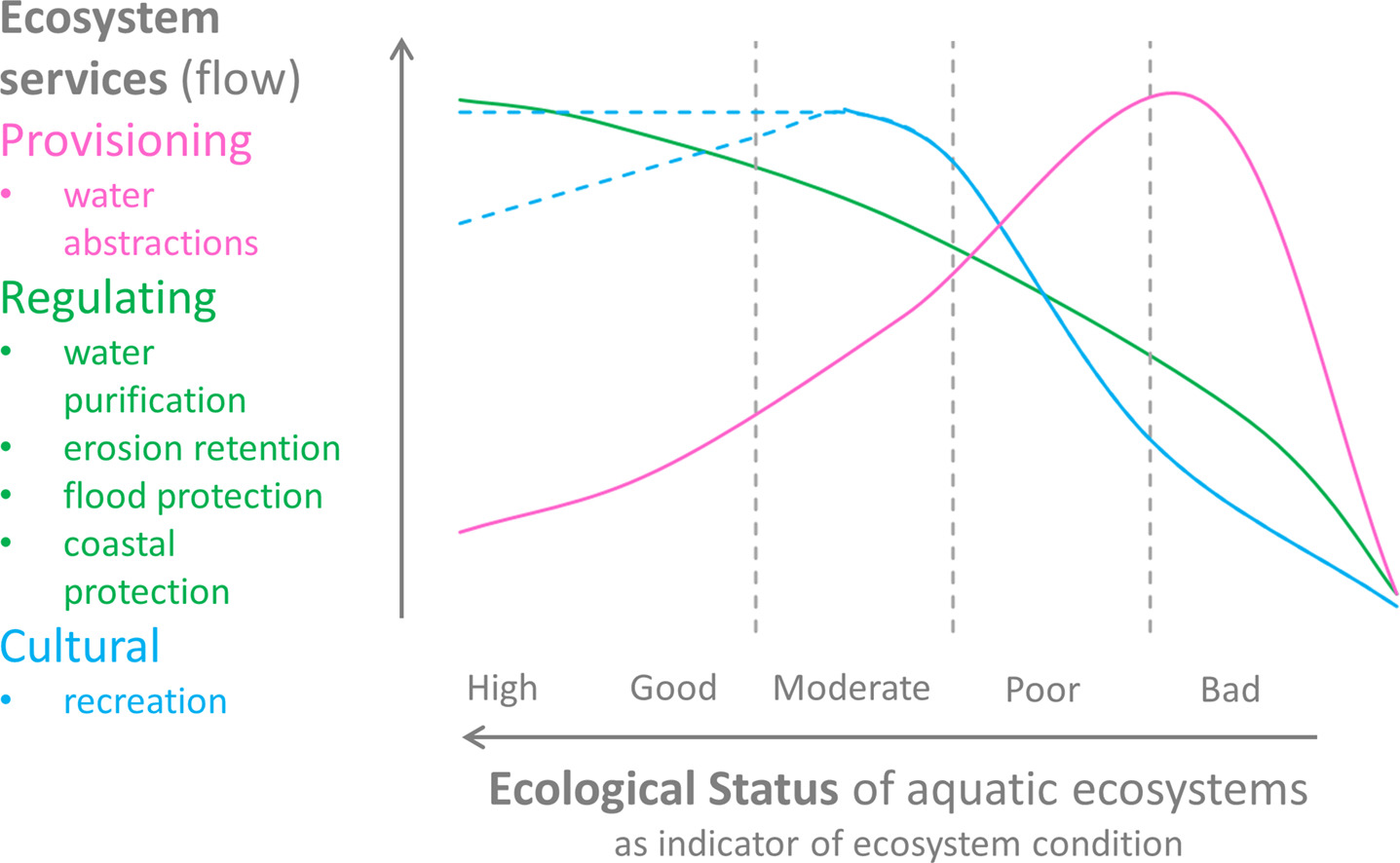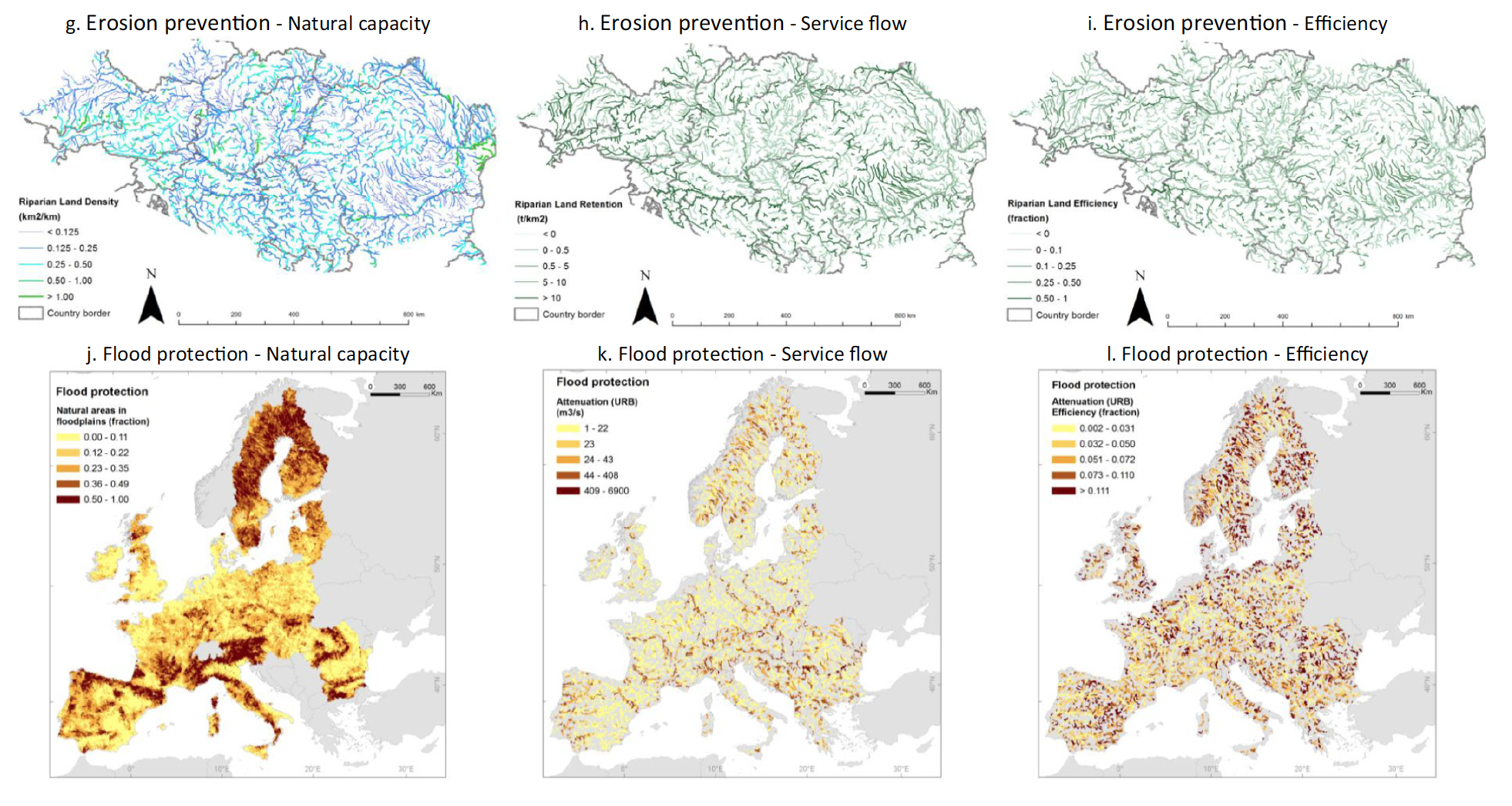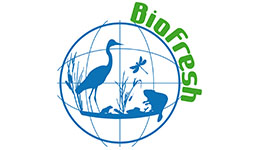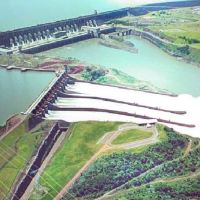Europe’s aquatic ‘life support system’: good ecological condition correlates with ecosystem service provision

European aquatic ecosystems can better provide vital services – such as water purification and flood protection – to humans when they are in good ecological condition, according to a new study. These findings highlight the need to protect and restore European waters, not only for the non-human lives they support, but also for the health and well-being of human communities.
Bruna Grizzetti and colleagues mapped European aquatic ecosystem services in relation to ecological conditions in rivers, lakes, groundwaters, coastal and transitional waters, floodplains, riparian areas and wetlands across the continent.
They found that there was a strong correlation between the delivery of regulating and cultural ecosystem services and good ecological condition. In other words, when aquatic ecosystems have abundant biodiversity, sufficient habitat and non-harmful chemical conditions, they are generally better at providing water purification, erosion retention, flood protection and coastal protection services. In addition, the authors suggest that recreation services – such as tourism – are generally increased in ecosystems with good ecological condition.
On the other hand, Grizzetti and colleagues found that provisioning services were correlated with poor ecological conditions. This is because their measure of provisioning services is based on water abstraction – an extractive process which is likely to negatively alter habitat and water availability in an ecosystem.

What are ecosystem services?
Ecosystem services are the many and varied benefits that ecosystems provide to humans. They are grouped in four categories: supporting services (e.g. nutrient cycling), provisioning services (e.g. food production), regulating services (e.g. water purification), and cultural services (e.g. recreation opportunities).
The logic behind the ecosystem services concept is that if the wide-ranging benefits humans derive from the environment can be quantified and communicated, then the argument for conserving and restoring ecosystems will be strengthened.

Grizzetti and colleagues mapped six aquatic ecosystem services in their study: water provisioning, water purification (through nutrient retention), flood protection (by floodplains), natural coastal protection, and recreation value. For each service, measures of natural capacity (i.e. the potential of the ecosystem to provide the service), flow (i.e. the actual use of the service), sustainability (i.e. flow compared to capacity), efficiency and human benefits were calculated and mapped.
What is ecological condition?
The researchers calculated ecological condition across Europe using monitoring data for ecological status taken by Member States under the Water Framework Directive.
Ecological status is a measure of the abundance and composition of different organisms in a food web and the habitat and chemical conditions of an aquatic environment, and represents an integrative measure of the condition of the water body. Data on ecological status in 79,630 water bodies across the EU was used to map ecological condition in this study.


Good ecological condition promotes ecosystem service provision
The research team, supported by the Joint Research Centre of the European Commission and the EU FP7 projects MARS and GLOBAQUA, recently published their findings in an open-access paper in the journal Science of the Total Environment.
They suggest that their findings support calls to protect and restore aquatic ecosystems through the EU Water Framework Directive and Biodiversity Strategy, the United Nations Sustainable Development Goals (SDG 6 – Clean Water and Sanitation and SDG15 – Life on Land), and the Convention on Biological Diversity.
Study co-author Olga Vigiak said: “We mapped freshwater ecosystem services in Europe and put them in relation with the ecosystem condition. Regulating and cultural services (like water purification, erosion prevention, flood and coastal protection, and recreation) were correlated with good ecosystem status.
Conversely, provisioning services (i.e. water abstractions for domestic and economic activities) put pressure on aquatic ecosystems. The study supports the need to protect and restore aquatic ecosystems to ensure the delivery of vital ecosystem services in the future.”
A key takeaway point from this study is the extent to which daily human lives rely on healthy functioning natural environments. In an increasingly urbanised world, this connection is not always perceivable, but what Grizzetti and colleagues’ study shows is that aquatic ecosystems in Europe form a giant ‘life support system’ for both human and non-human communities. It is in all of our best interests to protect and restore them.
+++
Grizzetti, B. et al (2019), Relationship between ecological condition and ecosystem services in European rivers, lakes and coastal waters, Science of The Total Environment, Volume 671, 25 June 2019, Pages 452-465















Comments are closed.